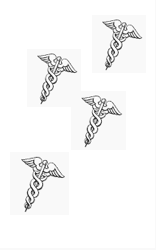By JESSICA DaMASSA, WTF HEALTH
Digital Mental Health startups continue to scale up — in customers, revenues, and investments — as the covid19 pandemic wears on. One of these companies, Ginger, has tripled its revenue this past year, expanded its client base to count more than 200 health plans and self-insured employers, and, for good measure, just added a fresh $50M Series D to their coffers. How much more money can investors put into digital mental health startups? Are things “frothy” in this space, or is investment just “catching up” to meet a latent demand that’s just really been brought to light? And, what is one of this category’s leaders planning to do now that they’re extra flush with cash? (Don’t forget, they’re sitting on a $35M round that closed late 2019…)
Ginger’s co-founder & COO Karan Singh and CEO Russell Glass join us to weigh in on the mental healthcare market’s state-of-play, including the buzz around their own business as both a potential acquisition target and a potential acquirer of additional behavioral health tech. We cover everything from investment to healthcare incumbent’s recent cries for more clinical validation, but my favorite part of this whole interview is when we start talking about the competition and tackle Lyra Health’s recent $100M raise and $1.1B valuation. Tune in around the 15:55-minute mark for some very DETAILED competitive analysis about Lyra-versus-Ginger from Ginger’s own CEO.
As this market gets more crowded, competition heats up, and healthcare consumers receive the benefit of more solutions to access at lower prices, Karan and Russ also help me speculate on what’s ahead, including whether or not they think we’ll see a “digital mental health equivalent” of a massive game-changing-market-moving deal like we saw when Teladoc merged with Livongo to shake up of both the virtual care and chronic condition management spaces.














